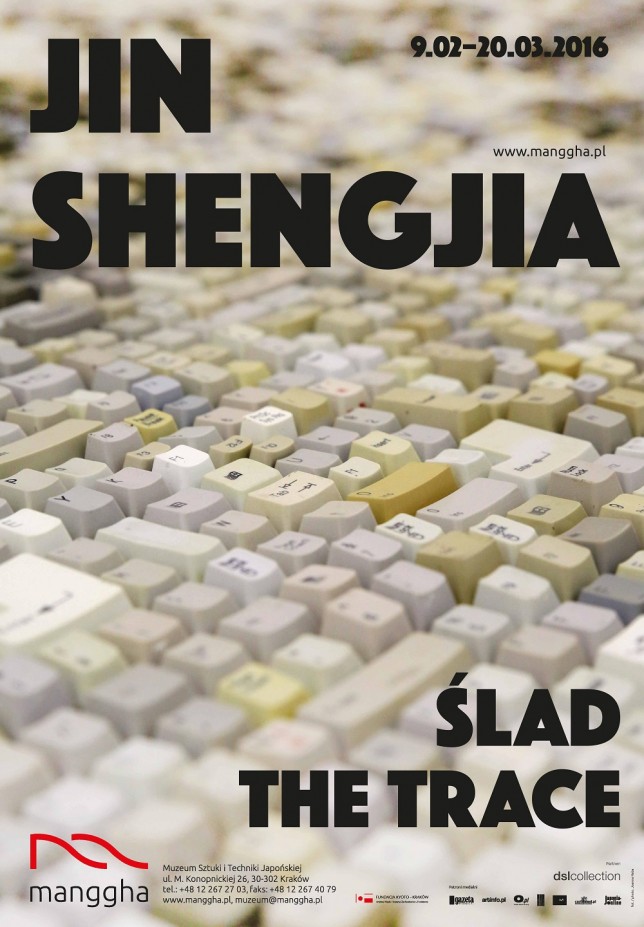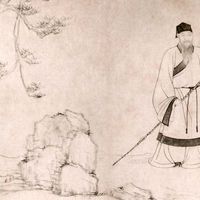Exhibition: Jin Shengjia, "Traces" | Poland
 The exhibition "Traces", by Chinese contemporary artist Jin Shengjia, can be visited at the Manggha Museum of Japanese Art and Technology, Krakow, an ASEMUS member, between 9 February and 20 March 2016. The exhibition, curated by Aleksandra Görlich, is partly inspired by the work of Huang Gongwang, a Yuan Dynasty artist.
Presenting the exhibition "Traces", Jin Shengjia mentions the following:
The exhibition "Traces", by Chinese contemporary artist Jin Shengjia, can be visited at the Manggha Museum of Japanese Art and Technology, Krakow, an ASEMUS member, between 9 February and 20 March 2016. The exhibition, curated by Aleksandra Görlich, is partly inspired by the work of Huang Gongwang, a Yuan Dynasty artist.
Presenting the exhibition "Traces", Jin Shengjia mentions the following:
"‘Traces’ are evidence ultimately left behind after everything has changed; they make history, cannot be avoided during the process of the human civilization’s continuous change. In the past, traces of human social activities were left in roads, on mountains, in the sea, or among letters. However, today, in the highly developed digital information age, computer keyboards become the most direct medium between the human and the information age. When keyboards are new, they are white, in the same shade. When they have been used for a long time, numerous times, under different circumstances, in different working areas, different environments, they subtle differences in colour. These colour differences are the ‘traces’ left by this busy information age. They come from all levels of society, from the state to the criminal, which spans the whole society. My work is composed of these keyboards. When you take a close look at this large keyboard art work, the first impression is that an abstract work has been densely covered with old keys, which makes you feel a sense of tension and oppression. This sense of oppression is like the fast-paced life style and the high density of people in a busy city while the keys in this work are just a common medium, the same experience that daily life brings to people. But when you take a distant look at this tense abstract work, suddenly you find that it becomes a hazy, magnificent and soothing landscape painting. Its meaning presents all kinds of moods – happy or angry, sad or joyous – according to different people busy in different fields. Take a close look, think of each of the people punching the keyboards; each ‘trace’ is a world. But when you take some distance to look and think, you realize that different ‘traces’ constitute this huge civilized society. The relationship of ‘close’ and ‘distant’ implies a kind of life attitude. We nourish a certain sentiment of life when being ‘close’ to the busy city life, different from that developed when being ‘far’ from it, and we also nourish a pliable romantic feeling. The prototype of the landscape painting in the work came from a fragment of Fuchun Resort painted by Huang Gongwang, a Yuan Dynasty artist. As it is representative of traditional Chinese landscape painting, I want to take this work to pay my respect to China’s ancient artistic achievement. I also want to set an interesting relevance between ‘ancient’ and ‘modern’, ‘Chinese’ and ‘International’ in this work."For additional information about the exhibition, please visit http://manggha.pl/en/exhibition/61
Similar content
posted on
17 Mar 2012
from - to
02 Jan 2012 - 19 Feb 2012
from - to
02 Jan 2012 - 19 Feb 2012
posted on
25 Jun 2012
19 Feb 2015 - 05 Jul 2015


